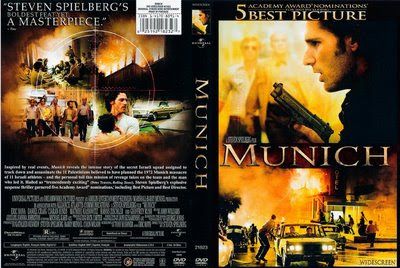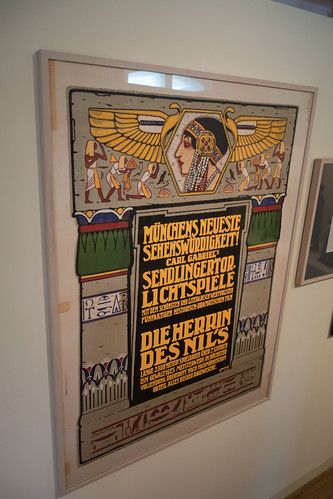
Munich Main Page
General Info

| City | Munich |
|---|---|
| Country | Germany |
| Website | https://www.muenchen.de/int/en.html |
| Place Name | Munich |
Overview
Welcome to Munich! Often recognized as Germany's third largest city, Munich has a rich history steeped in culture that dates back to the 8th century. This Bavarian city is full of artistic tapestries, traditions and fascinating architecture.
The heart of Munich beats in Marienplatz, the city's main square, where the beautiful architecture seems to transport you to a completely different era. Nearby is the famous Munich residence, once the royal palace of the Bavarian monarchs and now a breathtaking museum.
- Art and Culture: Often referred to as the city of art and beer, Munich is home to many museums, palaces and art galleries. The Treasury of the Munich Residence and the Alte Pinakothek, one of the oldest galleries in the world, are must-sees for art lovers.
- Cuisine: Traditional Bavarian cuisine is another highlight, while the city's beer gardens and breweries provide delicious pretzels, savory sausages and famous Munich beer.
- Events: Munich is also home to the world's largest folk festival, Oktoberfest, a 16-18 day festival that runs from mid to late September to the first Sunday of October and attracts millions of people. draws to the city from all over the world.
In short, Munich is a combination of grand palaces, historical sites, beer gardens and lively festivals. The city beautifully blends traditional Bavarian charm with modern cosmopolitan vibrancy.
History
History of Monaco
The history of Munich, the bustling capital of Bavaria, is as fascinating and diverse as its beer and architecture. Monaco's past is nuanced and intertwined with stories of royal dynasties, world wars and cultural evolution.
- Early beginnings: the city began as a simple monastic settlement - Mönchen in Old High German, hence the name München (German: München). It was officially established in 1158. founded by Hendrik de Leeuw, Duke of Saxony and Bavaria.
- Royal Era:1255 Munich became the seat of the princes of the Wittelsbach family, shaping the cultural and architectural landscape of the city. The luxurious Nymphenburg Palace and the beautiful Residenz testify to their rule.
- 19th century:1848 The German Revolution led to the development of Munich as a center of arts and science, attracting intellectuals such as Albert Einstein and Thomas Mann.
- World Wars: Munich suffered a lot of damage during World War II, but the post-war period underwent a solid reconstruction, restoring the city to its old-world charm and modernity.< /li>
- Modern Munich:Today, Munich is known as the city of “laptops and junk” due to its combination of traditional Bavarian culture and a thriving technology industry.
Despite historical upheavals, Monaco has always maintained a balance between preservation of tradition and progress, making it an attractive and enticing place to explore.
Geography and Natural Features
Munich, the capital of Bavaria, has a special geographical topography and natural features. Located on the high plains of southern Germany, Munich is sandwiched between the crystal clear waters of the Isar River and the towering peaks of the Bavarian Alps to the south.
This city is known for its beautiful nature, starting with the Englischer Garten, one of the largest city parks in the world. The park is a good example of Munich's commitment to preserving lush green spaces in the urban metropolis. Visitors can enjoy the garden's tranquil lakes, lawns and shady beer gardens. Munich is also home to many other parks and green spaces, each offering a unique combination of natural beauty and Bavarian rural charm.
The geographical landscapes of Monaco extend to the majestic Alps. Known for their snow-capped peaks and stunning mountain views, they offer a wide range of outdoor activities, from snowboarding and skiing in the winter to hiking and climbing in the summer.
- River Isar: This important geographical feature of Munich offers a great opportunity for various water sports and leisurely river walks, contributing to the city's leisure and entertainment culture.
- Lake Starnberger: Just 25 km southwest of Munich is one of the largest and most visited lakes in Germany. Beautiful views and clean water invite tourists and locals to retreat to the lake or refresh themselves.
Whether you're a nature lover, outdoor enthusiast, or just someone looking for some peace and quiet among Mother Nature's best, Monaco's geographic and natural features will not disappoint.
Influence and Legacy Features
The city of Munich, with its unique charm and beauty, has left a huge legacy, enriched by various influences. Munich: Features of Influence and Legacy delves into the fascinating nuances that shape the city.
One of the highlights is Monaco's Architectural Heritage area. Traces of Baroque and Renaissance influences are everywhere, visible in iconic structures such as the Frauenkirche and the Nymphenburg Palace. These monumental buildings reflect the historical richness influenced by famous architects of different eras.
Ultimately, Monaco's legacy includes his scientific contributions. The city is home to some of the best traditional and advanced scientific research institutes, including the Ludwig Maximilian University and the Max Planck Institutes.
This tapestry of architectural-historical influence, artistry, cultural identity and scientific progress makes a huge mark on Monaco not only in Europe but also around the world and has a profound impact on many aspects of life.
References
TrendingFan Content
So far, there is no trending fan content for this particular universe. Explore all available content and find something you might like!
